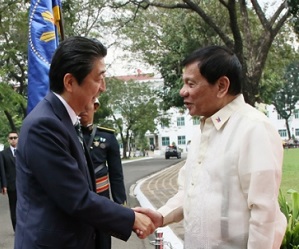[Updated] China, Vietnam Pledge South China Sea Peace
China and Vietnam issued a joint statement on Saturday, pledging to manage their maritime differences and safeguard peace in the South China Sea.
The statement came after Vietnamese Communist Party chief Nguyen Phu Trong held talks with Chinese President Xi Jinping in Beijing last week.
After a candid exchange of views, Xi stressed that China is willing to work with Vietnam to “advance their comprehensive strategic cooperative partnership in a sustained, healthy and steady way, making more contributions to peace, cooperation, development and prosperity in Asia and the world as a whole.”
Xi likening the two countries to “comrades and brothers.”
Vietnam, Brunei, Malaysia, the Philippines and Taiwan have territorial claims in the South China Sea, while China claims most of it.
Chinese news agency Xinhua reports that both countries pledged to seek basic and long-term solutions that both sides can accept via negotiation. Both agreed to manage maritime differences and avoid any acts that may complicate the situation or escalate tensions. Both countries also encouraged cooperation on trade, defense and security.
China is Vietnam’s largest trading partner, and Vietnam is China's second largest trade partner in the Association of Southeast Asian Nations (ASEAN). Around $5 trillion worth of maritime trade passes through the South China Sea every year.
In recent years, China and Vietnam have jointly patrolled and explored for oil in the Beibu Gulf, and some see this as an example for handling South China Sea disputes.
 China Critical of Abe
China Critical of Abe
Meanwhile, China said that Japanese Prime Minister Shinzo Abe attempted to drive a wedge between countries in the region by raising the South China Sea issue during his recent foreign trip. Abe visited the Philippines, Australia, Indonesia and Vietnam.
“Thanks to the joint efforts of China and relevant ASEAN members, the South China Sea situation is stabilizing and getting back on the track of negotiation and consultation,” Foreign Ministry spokesperson Hua Chunying said. “But the Japanese leader spared no effort in driving a wedge and playing up the regional tension, showing his ulterior motives and extremely unhealthy mindset.”
However, on arriving in the Philippines, Abe painted a different picture, saying: “I hope to exchange views regarding bilateral issues as well as our views on the regional situation. I also hope to discuss candidly on what the leaders and I can do by joining hands, along with how we should contribute to regional peace and stability.”
